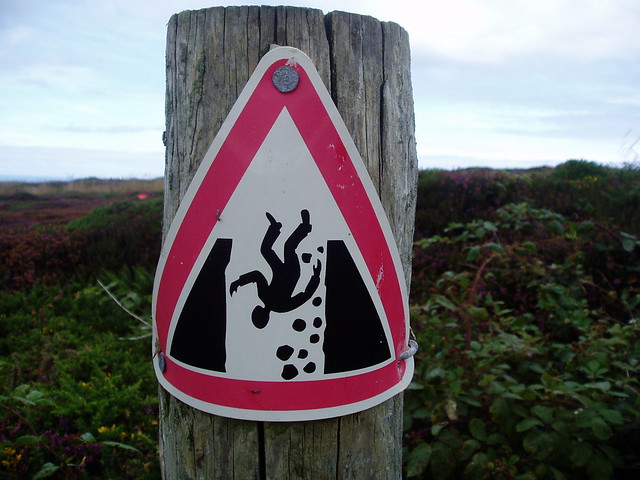Is making mistakes a necessity for success?
December 19, 2010strategy

I would like to ponder whether making mistakes is actually a necessary part of the process of achieving whatever form of “success” we are striving for. I’d love your thoughts in the comments.
A topic revisited
Many, many people have discussed the idea of failing in order to succeed. The reason I’m bringing it up again is that I’ve found writing a blog post forces me to lay out the thoughts in my head in an organised way, and this then means that I think more clearly about the subject I write about. I also love to hear from others and I’ve learned a lot from comments in the past.
Striving for success
I think many of us are desperate to succeed and are striving for answers on how we can reach our goal more quickly. Whether the goal is financial, completing a sense of purpose or achieving freedom, we all want to reach “success”. Therefore, we really should take on board any techniques we can to get there.
Is the answer obvious?
Surely there is empirical evidence that the answer is obvious: making mistakes is not necessary in order to succeed. There are many examples out there of people “getting lucky”. What I’d like to pose is the question of whether making mistakes is in fact the safest way to reach success. Surely doing it any other way is like a lottery?
Characteristics of entrepreneurs
So is venturing out and starting work on something without expecting to make mistakes an unwise move?
Typical characteristics that may come to mind for what makes a successful entrepreneur is things such as not listening, sticking to a vision, knowing they will succeed:
"Entrepreneurs are non-conformists. Being non-conformists, they are innately driven to differentiate from the status quo. They dont listen when someone tells them something cannot be done." - Bill DAlessandro
If this is what we should be doing as fledgling entrepreneurs, does it leave room for learning?
Certainty and passion misplaced?
Maybe there is room for mistakes and learning as well as passion, drive and certainty.
One of the most important lessons I feel I have learned so far on my own journey of startups is what I choose to aim for. When I first started, I was set on making a specific idea succeed. I soon stumbled a couple of times and realised that setting my sights on a specific idea succeeding was a bad strategy. I now put all my effort in succeeding with a startup, not a specific idea. This realisation was really invigorating and has made me much more comfortable with pivoting.
A new type of entrepreneur?
If the reasoning is right so far, then is a new type of entrepreneur required? Perhaps someone who embraces change and treats all their ideas as hypotheses. Someone who goes out there and rigorously tests their hypotheses. This is the idea behind the Lean Startup and Customer Development and support for these ways of thinking is growing fast. Or is this what successful entrepreneurs have always done and we are only now uncovering the methods?
Aim to make mistakes?
So this brings us to my final thought. Should we actively aim to make mistakes? There are many people who say it is wise to embrace making mistakes:
"An expert is a man who has made all the mistakes which can be made in a very narrow field." - Neils Bohr
"I embrace losing. It is how I learn." - Mark Suster
The whole idea of failure is also one of the main reasons that I aim to visit Silicon Valley in the future and experience the culture over there:
"I think embracing failure is one of the things that makes this country such a great place to do business in. In many parts of the world, if you fail once, you are done. People won’t touch you with a ten foot pole. But here in the US, it’s almost a badge of honor." - Fred Wilson
Is it even possible to succeed without enduring the experience of not getting something quite right?
Is it more productive to aim to make mistakes, or is it more productive to aim not to make mistakes but handle them and keep moving forward?
Photo credit: Andy Roberts
